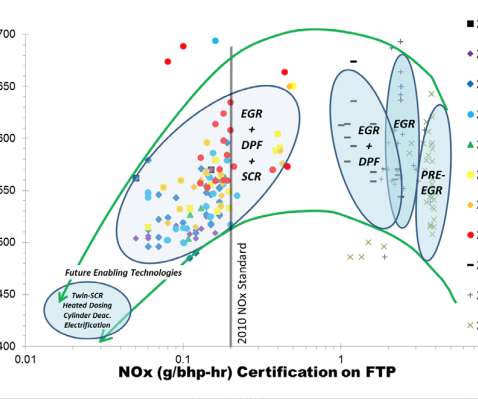ICCT working paper highlights benefits of current and emerging light-duty diesel technology; “promising pathway for compliance”
Green Car Congress
JULY 11, 2017
The ICCT team—John German and Aaron Isenstadt—concluded that diesels have and will retain two significant advantages over gasoline engines: significantly better fuel economy and cargo hauling and towing ability. Meeting the 2025 standard will require an average improvement in fuel economy of about 4.1% Background.

























Let's personalize your content